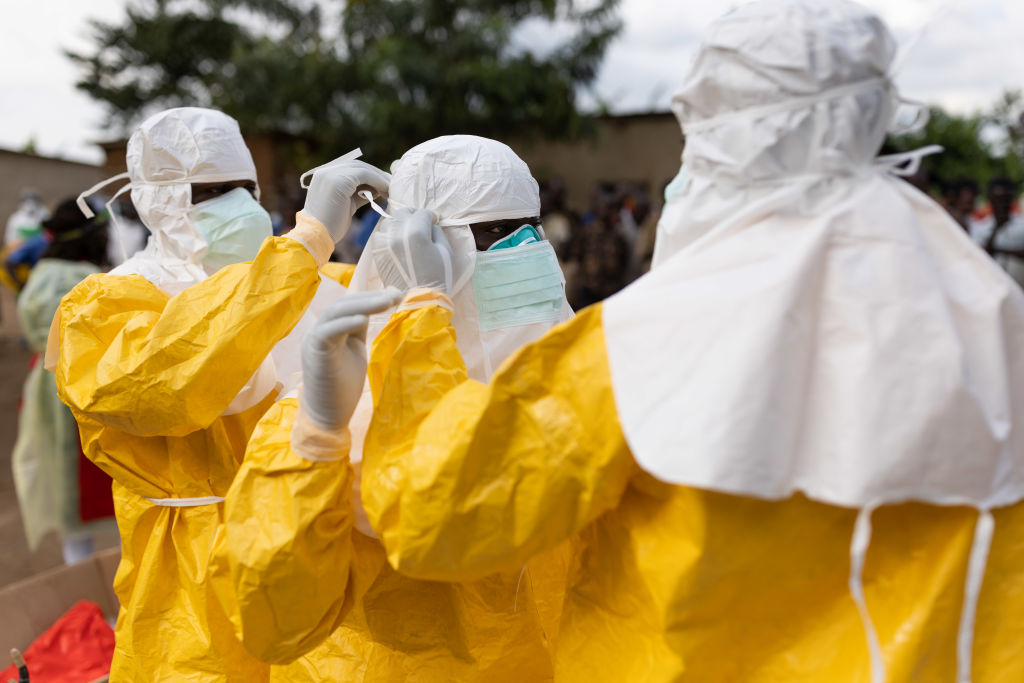ADF STAFF
Ugandan public health officials are hoping that communication as well as aggressive action will help control the spread of Ebola.
Authorities locked down the Mubende and Kassanda districts along the busy highway connecting Kampala with the Democratic Republic of the Congo. Along with that measure, public health officials continue to work to dispel misinformation and persuade anyone who may have contracted the disease to seek treatment immediately.
“In Ebola outbreaks, too many people still arrive at health centers with advanced disease or even die at home, infecting others in the process. This is what we need to avoid,” Dr. Guyguy Manangma, deputy head of emergency programs for Doctors Without Borders (MSF) said in a statement.
The current outbreak is Uganda’s third for the Sudan strain of Ebola since 2000. The 2000 outbreak killed about half of the 425 people it infected.
“Since the first one, we have gained significant expertise to be able to respond to this disease,” Kyobe Henry Bbosa, Ebola incident commander at Uganda’s Ministry of Health, told Scientific American magazine.
Ebola begins with a headache and fever, then develops into diarrhea and, in some cases, internal and external bleeding. The virus spreads through contact with bodily fluids — not through the air — and often poses the greatest risk to the family members as they prepare bodies for burial.
Because of the risk for spreading, Ugandan authorities have banned treatment by traditional healers and ordered the police to arrest anyone who may be infected and refuses to isolate.
As part of the response to the outbreak, Ugandan and international health officials urge people to remember the following:
There is no vaccine. While a vaccine exists for the Zaire strain that hit West Africa in 2014, the Sudan strain has no approved vaccine. That vaccine will not work against the Sudan strain. Two vaccines for the Sudan strain are being developed and could be applied in clinical trials in Uganda if they receive the required approvals. Isolation and treatment of infected people is the best way to keep the virus from spreading.
Quick response is vital. Delaying treatment for Ebola puts entire communities at risk, so health officials urge anyone who may be infected or knows someone who may be infected to seek treatment immediately. Doctors Without Borders recommends establishing clinics and isolation wards near affected communities, such as Madudu, to keep them close to family and friends. Those clinics can refer their most advanced cases to larger hospitals nearby for more intensive care.
Health care workers also have access to a mobile laboratory in Mubende that can confirm Ebola cases in six hours, rather than the longer time needed to send samples to the Uganda Virus Research Institute for testing.
Community support is crucial. Public health experts are working with community leaders both to monitor their communities for possible exposures to Ebola and to build trust in hopes of getting infected people to get treatment and isolate themselves early. The longer an infected person waits to seek treatment, the greater the risk they pose to their community as the disease progresses.
Public health officials depend on community leaders and response teams to stay ahead of the outbreak, according to Patrick Otim, health emergency officer at the Acute Events Management Unit of the World Health Organization’s Africa regional office.
So far, the community response has been positive, Otim told Scientific American.
“The teams that are [in] the field are receiving cooperation from the community in terms of investigation, listing of contacts and referral of suspected cases,” he said.
Uganda is using much of the health infrastructure it built to respond to COVID-19 to strengthen its response to this Ebola outbreak, Otim said.
“We now have significant capacity built across the country for protection and also to be able to galvanize committed support for a response,” he said. “So, we think that, using what we have done before, we should be able to appropriately respond to the current outbreak.”

